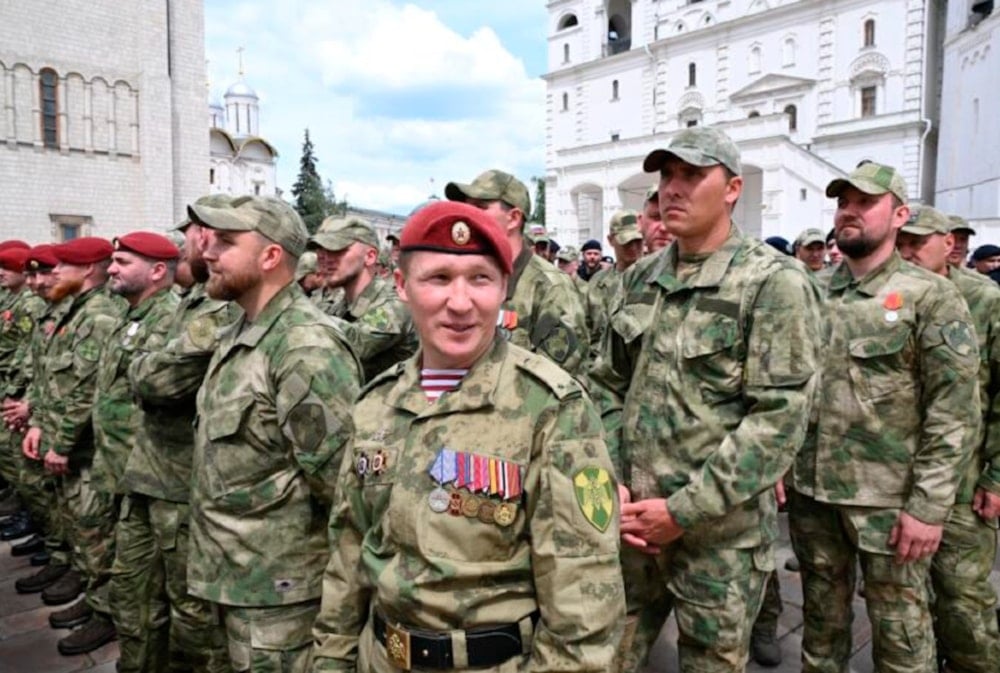Putin signs decree for Autumn conscription, summoning 133,000 citizens
The initiative targets young individuals who are eligible for military service but have not previously served in the reserves.
-

Russian soldiers await Russian President Vladimir Putin's speech at the Kremlin, Moscow, June 27, 2023. (AP)
Russian President Vladimir Putin signed on Monday a decree to initiate the autumn conscription, calling up 133,000 individuals.
The decree, published on the government portal, specifies that these 133,000 non-reservists aged 18 to 30 will be conscripted from October 1 through the end of the year. It also states that individuals whose conscription military service term has expired will be dismissed.
This announcement follows Putin's earlier decree, issued two weeks ago, which aimed to expand the staffing levels and personnel in the Russian military. Under that decree, the armed forces' staffing level increased from 2.2 million to 2.38 million, while the number of military personnel rose from 1.32 million to 1.5 million.
Putin revamps Russia's nuclear rules, unveils new arsenal guidelines
Russian President Vladimir Putin has revealed forthcoming revisions to Russia’s nuclear doctrine, which notably lowers the threshold for the use of nuclear weapons.
During a televised meeting of Russia's Security Council on nuclear deterrence, Putin discussed the key aspects of the revised document, which is awaiting his approval.
He warned that Russia may now consider using nuclear weapons in response to a conventional arms attack, in line with the new updates to the doctrine, formally known as the Basic Principles of State Policy on Nuclear Deterrence.
Putin explained that an attack on Russia by a non-nuclear nation with the “participation or support of a nuclear power” would be treated as a “joint attack on the Russian Federation.”
Additionally, he noted that Russia could deploy nuclear weapons in response to any conventional attack considered a “critical threat to our sovereignty.”
This adjustment significantly lowers the threshold for Russia’s use of nuclear weapons and coincides with discussions among Ukraine’s Western allies about supplying Kiev with longer-range weapons capable of striking military targets deep inside Russia.
The development follows an unexpected Ukrainian incursion into Russia’s Kursk region last month.
Although Putin did not directly reference Ukraine, he emphasized that the updates to Russia’s nuclear doctrine were necessary due to a rapidly changing global landscape that has introduced new threats and risks to the country.
According to a TASS news agency report, the revised doctrine expands the list of nations and military alliances subject to nuclear deterrence. It also includes more entries in the list of military threats that require nuclear deterrence for neutralization.

 3 Min Read
3 Min Read









